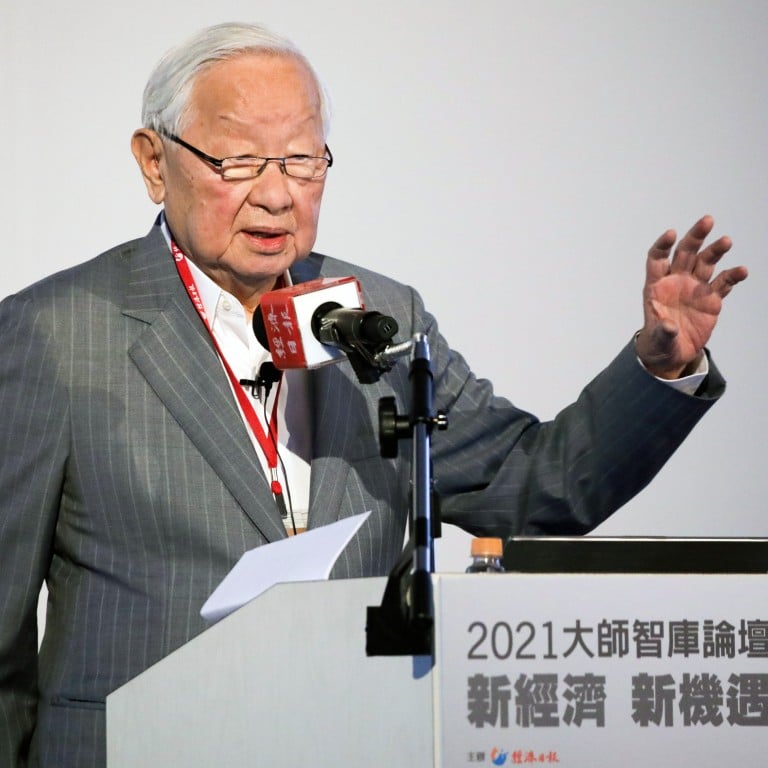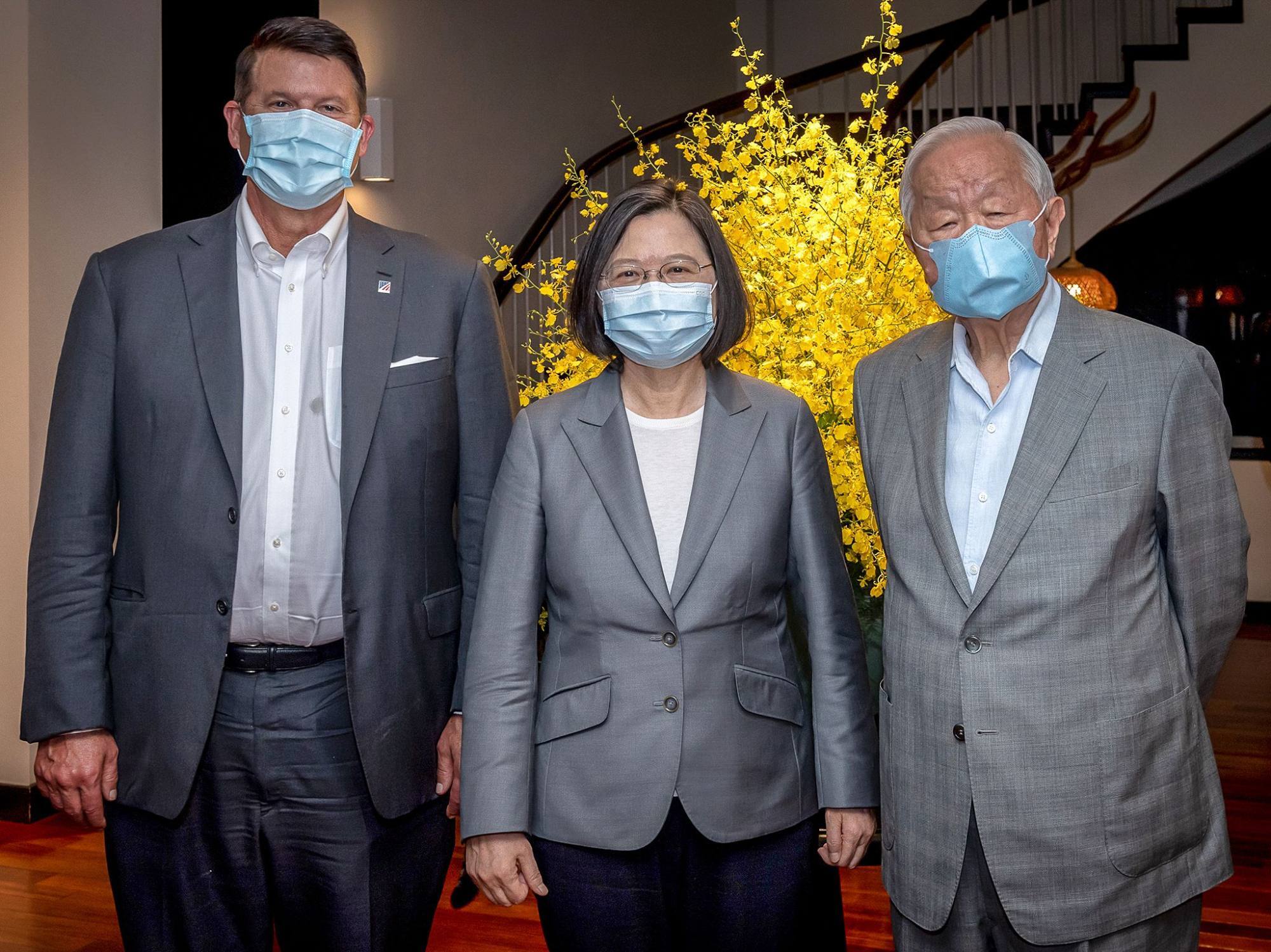
TSMC founder Morris Chang says China’s semiconductor industry still five years behind despite decades of subsidies
- Chang said chip making is a vital industry for Taiwan, with a profound impact on the daily lives of its people, the island’s economy, and national defence
- Samsung Electronics remains TSMC’s biggest rival in outsourced wafer fabrication, with South Korea enjoying many of the same advantages as Taiwan, he said
In a rare public appearance since retiring nearly three years ago, Morris Chang, the 89-year-old founder of the world’s largest contract chip maker, said China is not yet a competitor in chipmaking and that Taiwan should defend its leadership in semiconductor manufacturing.
Chang, who established Taiwan Semiconductor Manufacturing Co (TSMC) in 1987, is seen as the father of Taiwan’s success in the foundry business. At a forum hosted by Economic Daily in Taipei on Wednesday, Chang spoke about separate efforts by China and the US to build up their own chip-making capabilities.

“Mainland China has given out subsidies to the tune of tens of billions of US dollars over the past 20 years but it is still five years behind TSMC,” Chang said. “Its logic chip design capability is still one to two years behind the US and Taiwan. The mainland is still not yet a competitor.”
Chang said semiconductor manufacturing is a vital industry for Taiwan, with a profound impact on the daily lives of its people, the island’s economy, and national defence.
“It is also the first industry for which Taiwan has earned a competitive position on the global stage,” he said. “I call on the government, society and TSMC to keep hold of it tightly.”
Taiwan hits back at mainland Chinese firms fishing for its chip makers
In his speech, Chang also took a swipe at US chip giant Intel, describing its recent decision to enter the contract chip making market as “very ironic” because it turned down an opportunity to invest in TSMC more than three decades ago. Contract chip makers like TSMC typically take orders from so-called fabless chip makers like Qualcomm, which design their products but outsource the manufacturing.
Chang said he was rejected by Intel when he approached it for funding in 1985. “In the past, Intel was the alpha sneering at us and thought that we would never get big,” he said. “They never thought the business of [outsourced] wafer fabrication would become so important today.”
Chang said the US is also at a disadvantage compared with Taiwan because it lacks engineers dedicated to the semiconductor manufacturing sector, adding that the “US level of dedication to manufacturing was absolutely no match for that of Taiwan”.
“What I need right now are capable and dedicated engineers, technicians and operators. And they have to be willing to throw themselves into manufacturing,” he said. “In the US, doing manufacturing isn’t popular. It hasn’t been popular for decades.”
Chang said that Samsung Electronics remains TSMC’s biggest rival in outsourced wafer fabrication, adding that South Korea enjoys many of the same advantages as Taiwan, which include an ability to foster top-notch talent for the industry.

